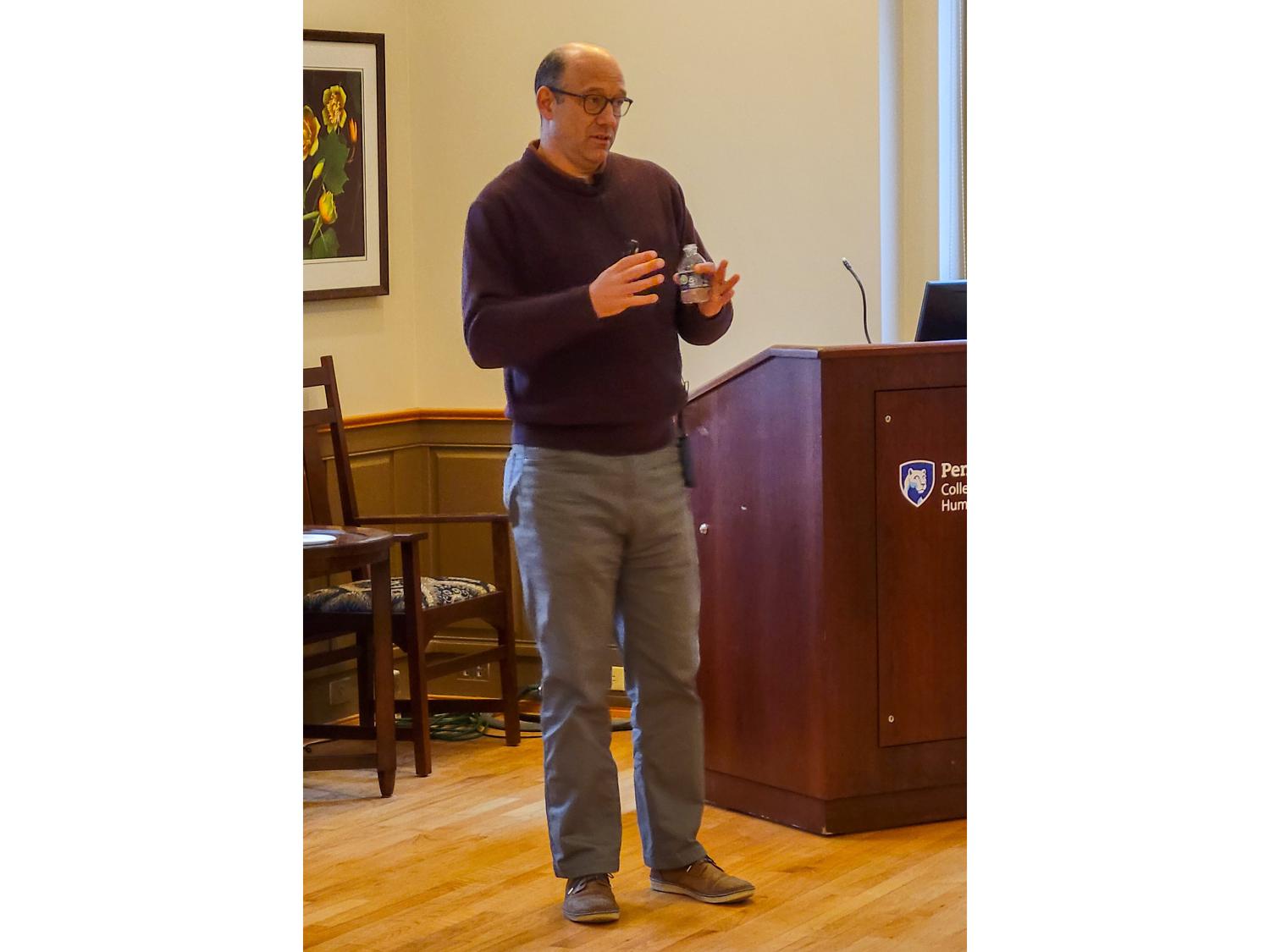
UNIVERSITY PARK, Pa. — With a passion for mentorship and support, Penn State Institute for Computational and Data Sciences (ICDS) Associate Director David Hunter combines his experience in academia and statistics to strengthen the interdisciplinary research mission of ICDS and Penn State.
“The institute structure is a phenomenal aspect that sets our University apart from others,” Hunter said. “It gives us an important tool to help researchers succeed at their work. I am happy to be a part of that process.”
Hunter, who is also a professor of statistics, has been at Penn State for 25 years, starting as a professor in the statistics department right after earning his doctorate in statistics in 1999.
“I have always been good at math,” Hunter said. “I decided to major in math in undergrad, and I was also interested in teaching.”
Hunter earned a teaching certificate during his undergrad and began teaching at a public high school upon graduation. He found his interest in statistics after taking over for a probability and statistics teacher at the school he was teaching at.
“The more I got into it [statistics], the more I was interested and found that it was the best of both worlds — applied mathematical science where one can also do a deep dive into theory,” Hunter said. “It was a pretty good fit for what I was interested in ultimately doing. I didn’t expect to become a professor; my [graduate] adviser was an integral part of that. I took this naive plunge and liked it well enough that I am here 25 years later.”
Hunter has worn many hats over his years of experience at the university including chair of undergraduate studies program, head of the department of statistics, co-developer of the undergraduate degree in data sciences and was a member or chair of numerous committees.
Between 2018-19, Hunter was a fellow with Teaching and Learning with Technology (TLT), where he was tasked with working alongside TLT staff members such as Hannah Williams to develop a data sciences grassroots community.
“I have been very heavily involved with data sciences and working to build a data sciences community,” Hunter said. “There’s a tangled web that connects data sciences with artificial intelligence and anything that I can do to help that community thrive, I want to do.”
In March of 2023, Hunter had taken on more roles at ICDS, including associate director and director of the Artificial Intelligence (AI) Hub, an assertively inclusive resource and forum for promoting activities to inform multiple audiences about work in AI, thereby energizing organization across the University community, according to the AI Hub website.
“It feels like I have been working with ICDS for a while. I have worked in various administrative roles at ICDS,” Hunter said.
Hunter’s efforts continued as he offered support to Guido Cervone, who serves as the interim director of ICDS, as he stepped into this role.
“My main goal is to help Guido in his first year. Good changes have been made while retaining the strength ICDS has always had,” Hunter said. “I just enjoy working with other people and having a role in helping them succeed.”
Hunter, through his work with the AI Hub, also works to connect those who direct AI-focused centers at Penn State.
“Part of my role as the AI Hub director and as associate director [of ICDS] has been to look outside of ICDS, for instance, serving as an ad hoc member of the executive committee of the Social Science Research Institute," Hunter said. "Based on my experiences at Penn State, I can build connections to strengthen the research mission.”
The interdisciplinary mission of ICDS and Penn State encourages the integration of tools, methods and approaches to research.
One type of mathematical tool used in data science and AI goes under the general name of neural networks. These networks are used to “train” a computer how to associate a given set of inputs with known outputs using a complicated algorithm, Hunter said. Once the computer learns the algorithm, researchers can add new inputs to predict what outcomes are supposed to be.
This work is just one example of the need to balance computational and classical methods, according to Hunter.
“We can’t get away from theoretical development, but we need computational science for most modern statistical methods,” Hunter said. “Training neural networks is a super complicated problem. It involves a lot of math and computing.”
Hunter’s research partly involves statistical modeling of networks based on data from individuals who relate to each other in social networks.
“There’s a random element to these relationships, but people are more likely to connect over similar interests,” Hunter said. “The social networks have risen from some sort of process, and we are using statistical techniques to understand the formation of these networks. It is a complex web of interdependencies, making the modeling of these networks difficult. ... Over the last several years Penn State has increased its presence in the statistical network modeling community. I like helping people as much as doing my own research and working on new projects in network modeling while serving as a mentor to students and junior faculty."
Hunter’s service doesn’t go unnoticed.
He was recently honored with a distinguished service award from the Eberly College of Science. The award “recognizes faculty and staff who have made significant and outstanding leadership and service contributions to the Eberly College of Science over a sustained period of time,” according to Penn State News.
“I’m really happy that our college [Eberly] does this and recognizes service,” Hunter said. “I’m personally honored.”